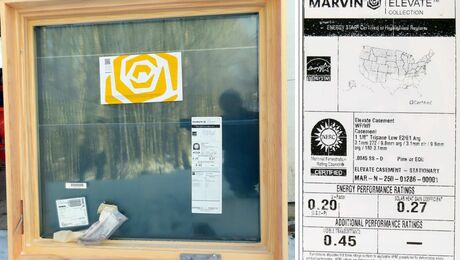
One of the sideshows in the relatively slow growth of renewable energy in the U.S. has been the conflict between homeowners associations and property owners when the latter want to install solar power.
The Los Angeles Times brought the conflict into focus in a recent story about homeowners in California who used the state’s Solar Rights Act, adopted in 1978, to prevail over HOA objections to their plans for solar installations on their homes. But California is hardly alone in offering such protections.
There are solar access laws in at least 37 states, although most of these laws address solar easement contracts rather than individual homeowners’ rights to install solar power. Alaska’s solar access law, for example, focuses on solar easement, allowing neighboring property owners to voluntarily enter into contracts that ensure adequate sunlight exposure for their solar energy systems. And Idaho’s building code includes solar easement provisions, transferable with the property title, that allow for the access rights to sunlight for a solar energy device. Georgia, Indiana, Iowa, Kansas, Kentucky, Minnesota, Missouri, Montana, Nebraska, New Hampshire, New Jersey, New Mexico, New York, North Dakota, Ohio, Rhode Island, Tennessee, Utah, and Virginia have similar easement provisions.
When states side with homeowners
Fewer states have laws specifically designed to override (with some exceptions) homeowners association covenants and restrictions on solar installations. Those states include Arizona, Colorado, Delaware, Florida, Maine, Maryland, Massachusetts, Nevada, New Jersey, North Carolina, Oregon, Vermont, Virginia, and Wisconsin.
The nuances that some states have written into their solar access laws may warm the hearts of litigators, but not necessarily homeowners with an interest in solar power. The Database of State Incentives for Renewables in Efficiency, for example, has posted a summary of North Carolina’s solar access laws – SB 670, which took effect October 1, 2007, and an update, HB 1387, which took effect December 1, 2009 – that includes the following provisions:
“Cities and counties in North Carolina generally may not adopt ordinances prohibiting the installation of ‘a solar collector that gathers solar radiation as a substitute for traditional energy for water heating, active space heating and cooling, passive heating, or generating electricity for residential property.’ However, city and county ordinances may prohibit the installation of solar-energy collectors that are visible from the ground and installed (1) on the facade of a structure that faces areas open to common or public access; (2) on a roof surface that slopes downward toward the same areas open to common or public access that the facade of the structure faces; or (3) within the area set off by a line running across the facade of the structure extending to the property boundaries on either side of the facade, and those areas of common or public access faced by the structure.”
Maine and Virginia have adopted solar installation laws whose provisions allow community associations to impose “reasonable restrictions” on installations in some cases.
As the Times story points out, solar advocates such as the Solar Energy Industries Association are pushing for pushing for a federal version of the California law.
Hope for, but not yet assurance of, a federal provision
H.R. 2454, the American Clean Energy and Security Act of 2009, which passed the House of Representatives in June, included a provision that would make it illegal for HOA rules, leases, or private contracts to prohibit the installation of solar systems.
Two other legislative measures addressing the issue, H.R. 2848 and S. 1016, where both introduced in 2007 and still await committee hearings. Both would tackle HOA restrictions in similar fashion, mainly by requiring the Secretary of Housing and Urban Development, in consultation with the Secretary of Energy, to issue regulations that would “prohibit any private covenant, contract provision, lease provision, homeowners’ association rule or bylaw, or similar restriction, that impairs the ability of the owner or lessee of any residential structure designed for occupancy by one family to install, construct, maintain, or use a solar energy system on such residential property.”
While the enactment of any of the proposed federal requirements is certainly not a sure thing, the growing protections for the solar-inclined homeowner on the local and state levels are undeniable. “The tide,” as the SEIA says on its website, “is shifting.”
Weekly Newsletter
Get building science and energy efficiency advice, plus special offers, in your inbox.











0 Comments
Log in or create an account to post a comment.
Sign up Log in